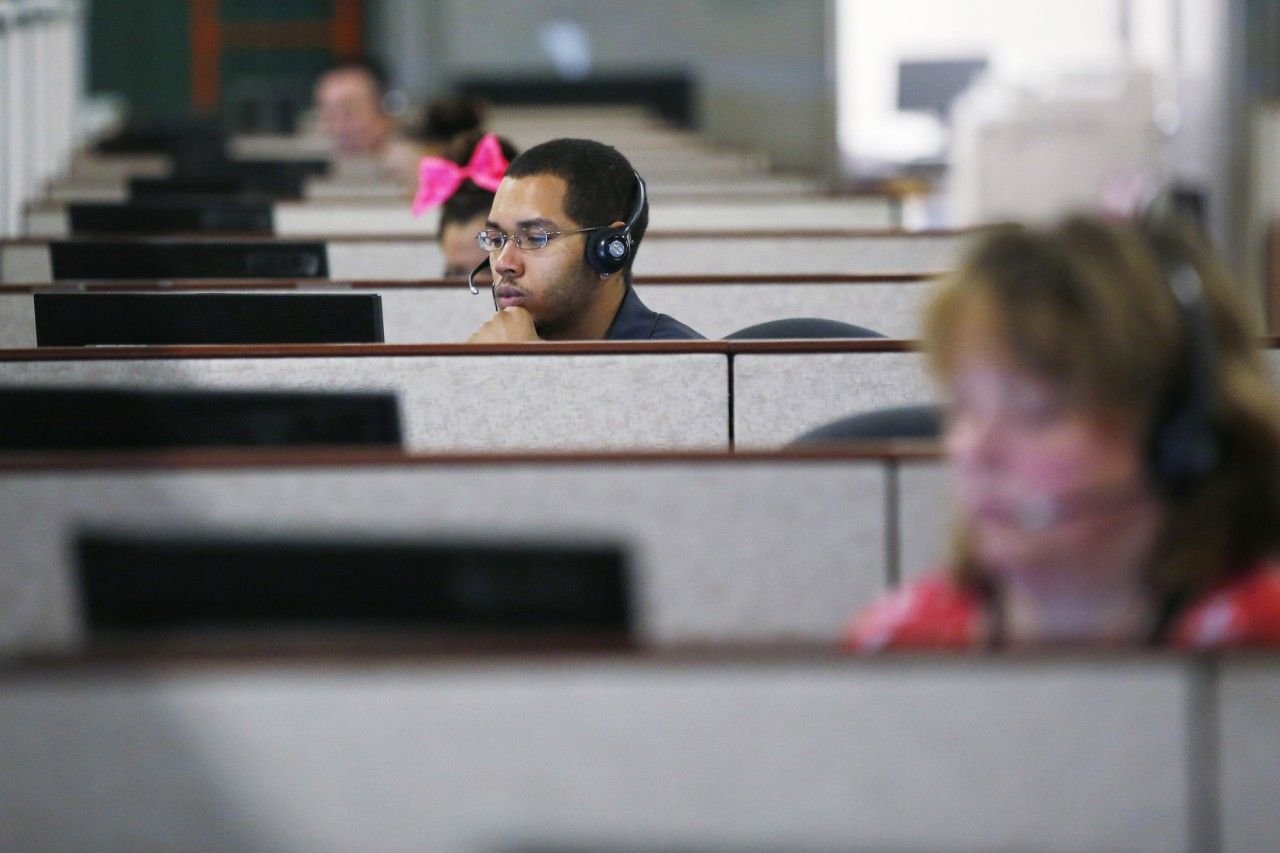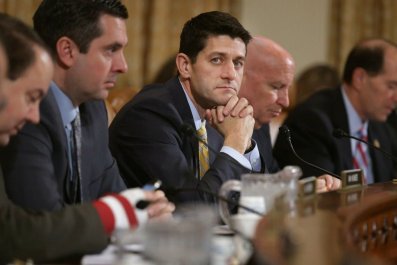A societal line has been crossed with Healthcare.gov: The web has become too important to leave to people who can't do it well.
Healthcare.gov is America's first full-blown national crisis over a website. We've had hearings in which members of Congress - a quarter of whom still use Blackberrys - made profound technological observations, such as when Representative Joseph Pitts, R-Pennsylvania, called Healthcare.gov one of the "worst IT disasters in history." Apparently he forgot about Microsoft Bob.
We've had a president use the term tech surge and news anchors express outrage over lines of code. Next thing you know, Grandma's going to ruin Thanksgiving by ranting about the government's failure to use Agile software development.
The web has become as essential to American daily life as indoor plumbing, electricity and television. And Healthcare.gov isn't just a website - it is the engine of a landmark overhaul of the nation's medical-industrial complex, effecting the lives of hundreds of millions of people. It is as critical to the Affordable Care Act as eggs are to quiche. Never before has a website borne such a burden.
Just 20 years ago, only a tiny niche of propeller-heads even knew what the World Wide Web was. It would be another year or two before the founding of Netscape, eBay, Amazon, and Yahoo. Only 18 years ago, people queued up around the block to buy Windows 95 to load on desktop PCs the size of air conditioners.
Now, Healthcare.gov has presented us with a profound spectacle: "For the first time in history," wrote technologists Clay Johnson and Harper Reed, "a president has had to stand in the Rose Garden to apologize for a broken website."
And here's why he had to apologize: We expected it to work. That's what the web does now. It works. Sites have been perfected and honed - made as reliable as toasters. President Obama said Healthcare.gov was going to be like an Expedia of health care. And, well, Expedia works!
Rich Barton founded Expedia in 1996 and real estate site Zillow in 2005, and so I asked him what he thought about Healthcare.gov's troubles. "Launching anything that gets 3 million-plus visitors on the first day is really hard," he replied. "The day we launched Zillow, about that many people all tried to come to the site at once, and we crashed for like 18 hours." Now Zillow gets almost 60 million unique visitors a month.
To put that in perspective: In 2005, a rush of 3 million users blowing down a site built by a web veteran was practically a badge of honor. In 2013, it's an inexcusable debacle.
The problem, of course, isn't that a Healthcare.gov can't be done. It's that it can't be done by the same people who brought us the TSA and the 1040 tax form.
Government might be able to do a lot of important things, like operate a military. And it can do certain kinds of technology, like running supercomputers at Lawrence Livermore National Lab to simulate nuclear explosions so we don't have to occasionally blow up a Pacific atoll to see if the bombs work. (Yet the lab still can't make a decent website.)
But government's core competency - at any level - never has been and never will be customer service. You're not likely to see a DMV clerk skip lunch to help clear a mile-long line. And you're never likely to get a smooth, efficient, consumer-friendly experience at Healthcare.gov.
This is why the tech surge isn't really going to help. It might fix the technical problems so the site doesn't actually break, but it's not going to make it work the way an Expedia or Amazon or iTunes Store works. Heck, the guy in charge of the tech surge is this Jeffrey Zients, who has been a consultant for Mercer and Bain and a government guy - with not a consumer-facing, customer-friendly job on his resume. His own mother dissed him, saying he's no computer expert, "unless it's a new talent."
Like any enterprise in the 21st century, the government needs to understand its core competencies and get out of everything else. Obamacare should have set up a situation that made health insurance exchanges legal and profitable. In about two seconds, venture capitalists in Silicon Valley would've funded a troupe of pimply 25-year-olds working out of a Peet's Coffee & Tea who would've built an exchange that felt like a cross between AirBnB and WebMD. (And they would've given it a name like Healthee.)
Some might argue that something like Healthcare.gov is too technically challenging and expensive to move from government control to private entities. Yeah, well, tell that to SpaceX and the other private companies building rocket ships that are more cost-efficient and capable than whatever's coming out of NASA these days.
The sad truth is that health insurance exchanges are always going to be frustrating experiences as long as they're operated by the public sector. Why would a website be any different than the rest of life?

























